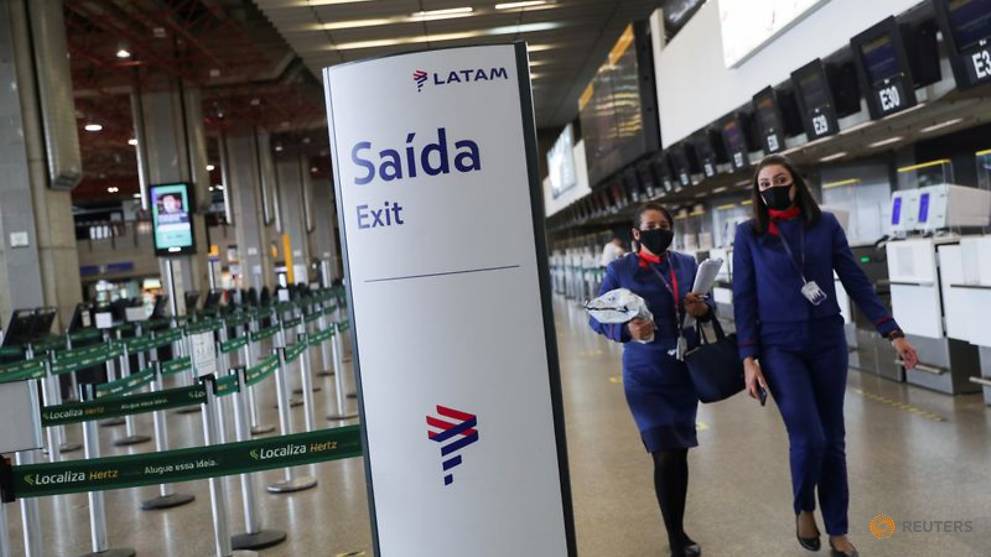
LATAM's bankruptcy filing to delay its Brazil bailout to at least July: sources
LATAM Airlines Group's U.S. bankruptcy filing this week will delay its potential bailout in Brazil to at least July and also push back aid to its rivals at least through the end of June, two sources said on Thursday.
RIO DE JANEIRO: LATAM Airlines Group's U.S. bankruptcy filing this week will delay its potential bailout in Brazil to at least July and also push back aid to its rivals at least through the end of June, two sources said on Thursday.
The delays will add further strain to Brazil's airlines, which were already in weak shape before the pandemic. Rivals Azul SA and Gol Linhas Aereas Inteligentes SA are also negotiating bailouts.
"The bailout will happen; what could happen is that it may be staggered due to LATAM's situation," said one source.
Neither LATAM nor Brazil's state development bank, BNDES, which is coordinating the bailout, had an immediate comment.
LATAM's bankruptcy filing this week has caused private banks to worry about the viability of Brazil's airlines after the pandemic, the sources said.
LATAM's Brazil subsidiary is not part of the U.S. bankruptcy, although executives acknowledge it is possible it might also go through a court restructuring.
Government and private banks are also worried layoffs will be unavoidable, which could have negative political implications, the sources said.
LATAM does not dispute it will lay off workers. LATAM's Brazil CEO, Jerome Cadier, told Reuters this week the company will undergo downsizing and that layoffs are not prohibited under the government's current draft of bailout conditions.
He added that if layoffs were banned, the rescue program would have to be much bigger. Currently, the bailout is valued at 6 billion reais.
LATAM's bankruptcy has also raised questions about the collateral on any bailout loans.
One source said the Brazilian government is still figuring out how best to lend to LATAM considering its parent company is in bankruptcy protection. Usually the development bank asks for collateral from parent companies.
"What we would want is for that collateral to have priority over the rest of the company's debts," the source said.
(Reporting by Rodrigo Viga in Rio de Janeiro; Editing by Matthew Lewis)